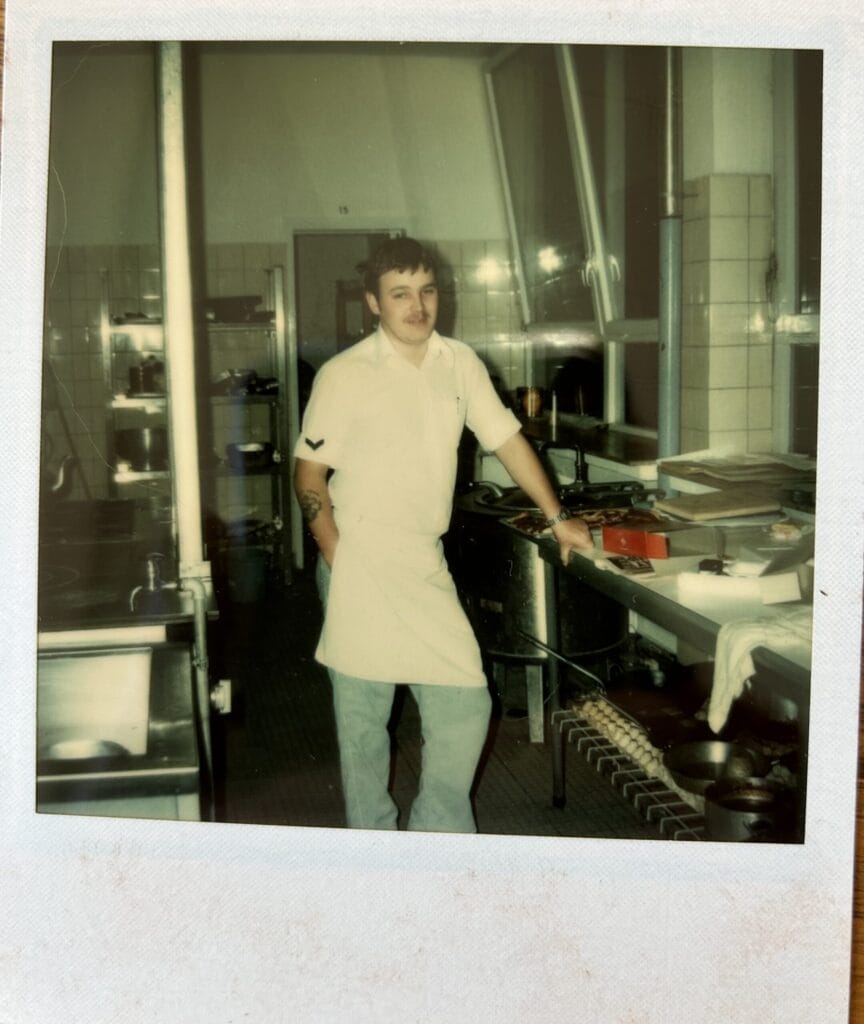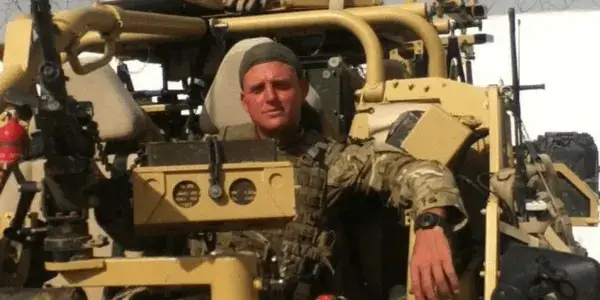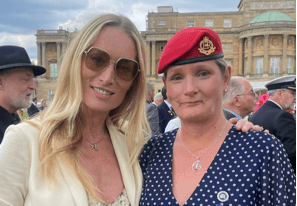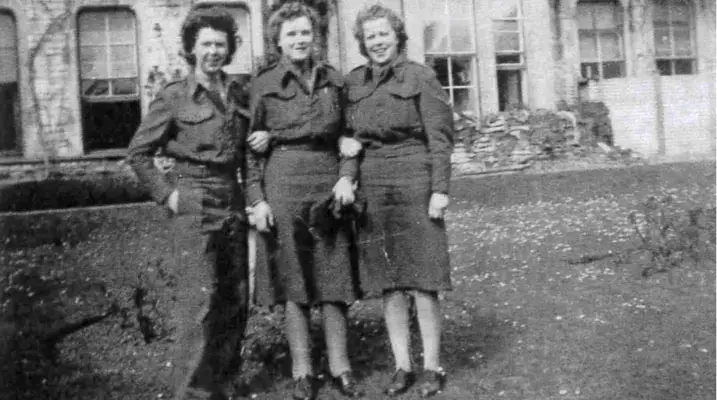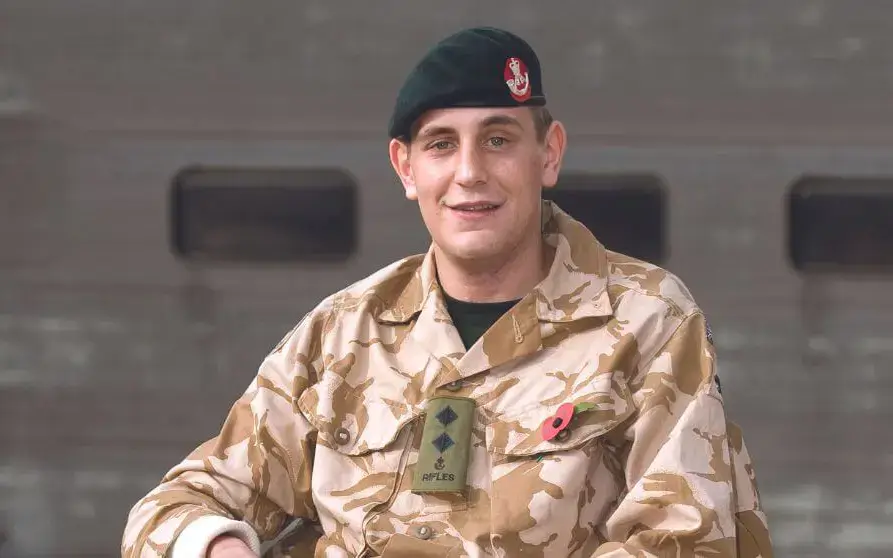Caroline’s Story
Caroline’s story is one of resilience, identity, and ultimately, hope. What was once a last-ditch effort became the breakthrough she never expected - not just in managing her pain, but in rediscovering her sense of self.
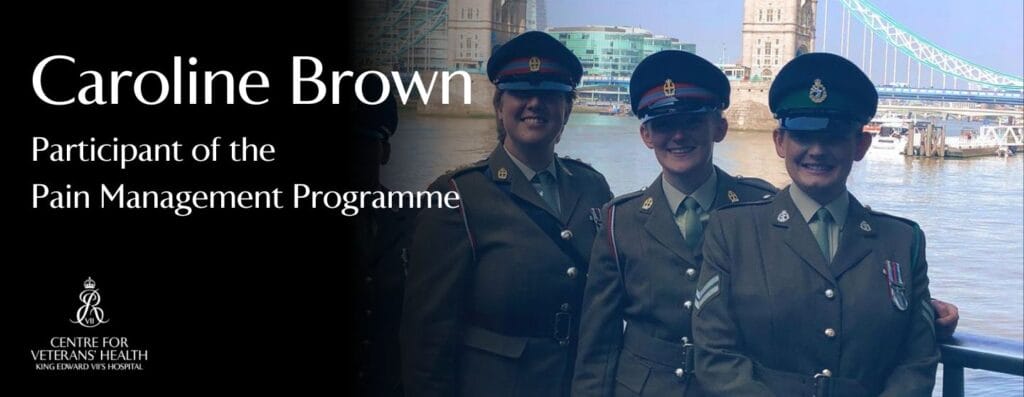
From heartbreak to healing, Caroline’s story is one of resilience, identity, and ultimately, hope. What was once a last-ditch effort became the breakthrough she never expected – not just in managing her pain, but in rediscovering her sense of self.
A Lifelong Calling, Cut Short
Caroline applied to join the military when she was just 16 years old, as a scholar at Sandhurst. “I was always destined to go into the army” she recalls, “but it kind of took a few turns on the way”. Caroline went to university with a clear intention of joining the Army as a qualified Nursing Officer. During university, Caroline joined the University Officers’ Training Corps (UOTC), gaining a taste of military life alongside her studies. “It was a great way of gaining some military experience before joining the regulars” she explains. As soon as she qualified as a nurse in September 2017, she wasted no time and by the end of that month, she was already beginning the Professionally Qualified Officer (PQO) course at Sandhurst.
Caroline arrived at Sandhurst full of determination, ready to pursue the career she had dreamed of since her teens. But her time in training would be abruptly and unexpectedly cut short. The beginning of a series of events that would not only derail her Army aspirations but ultimately bring them to an end.
Trust your body
When Caroline began her course at Sandhurst, she mentioned a niggle in her shoulder to her platoon commander. It didn’t seem serious at the time, and she was encouraged to push through and continue training.
That decision would prove devastating. “They made it a lot worse to the point where I ended up having a very serious injury to my brachial plexus which is a strand of nerves in the neck and shoulder that carries signals from the spinal cord to the shoulder, arm, and hand. I was left with a lot of pain.”
Despite her worsening symptoms, Caroline was instructed to continue training. “The PQO course is only eight weeks long so there is huge pressure to become ‘military fit’ very quickly. You’re told beforehand not to carry any weight before you arrive, but within weeks you’re expected to go from light walks to carrying 30–40 kilograms while running, and diving on the ground with a rifle.”
While others in her platoon gradually progressed and built up their endurance, Caroline was told she could carry a lighter load to stay in training. A compromise that didn’t hold. “It basically came to the final exercise and they said, ‘Right, now you need to carry all the weight.’ I went from carrying 10 kilograms to over 30. I was diving, running, attacking – and I just went man down. I was in agony.”
A physical and mental battle
Having made it through most of her training, then getting injured, Caroline had to leave the course just two weeks before comissioning. “Watching all my friends commission without me was very difficult, I felt like such a failure. Knowing that my injury could have been avoided and then being left in agonising pain, it was a really hard pill to swallow.”
Caroline pauses, visibly emotional as she reflects. “I’ll be honest, the whole experience really affected my mental health. I’d lost not only my army career, but because I’d only just qualified as a nurse and then struggled to practice due to the pain, I eventually lost that too. Everything I’d worked towards for years was gone and I really struggled to find a new identity after leaving the Army.”
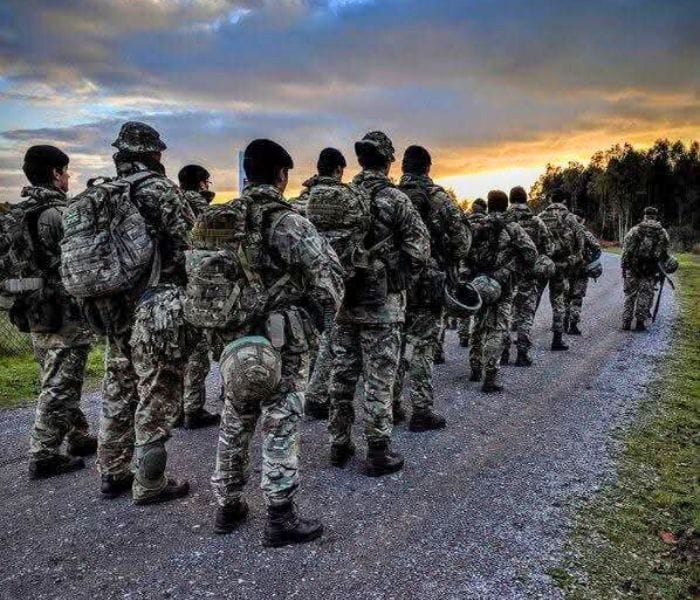
A long-awaited diagnosis
After mis-diagnosis, and being put on light duties that confined her to a desk job, it took two years to get the correct diagnosis by a specialist in London.
In 2019, Caroline finally underwent surgery to address the nerve damage, which by now was covered in scar tissue. She was referred to the Defence National Rehabilitation Centre at Stanford Hall for intensive rehab. Despite her efforts, recovery proved elusive.
“I was eventually given an administrative discharge rather than a medical one, the idea being that if I got better, I could rejoin, but after a while my surgeon basically said, if I hadn’t improved after so long, then that would be as good as it would get, but I was still in agony”.
Living with Chronic Pain
Caroline’s injury was invisible, but its impact was relentless. “It’s all consuming and invisible because people don’t see it. Your husband doesn’t see it. Your kids don’t see it. Your family doesn’t see it. They don’t see the pain you’re in every day. They forget you’re even in pain and they wonder why you’re struggling so much. It makes you angry, it makes you fatigued, it makes you burnt out. Trying to just feel normal on top of that, is really hard”.
Like many military personnel and veterans, Caroline internalises a military mindset to always push through, never show weakness. “I have a really strong military mindset. And I think veterans especially struggle with chronic pain because we think, ‘Why am I struggling? I should just be able to tough this out.’ But that’s the challenge, to let go of that conditioning.”
Finding the Veterans Pain Management Programme
After years of countless physiotherapy, rehab, and failed interventions, Caroline was emotionally and physically exhausted. “By this point, I just felt completely hopeless. I’d seen King Edward VII’s Hospital and the Centre for Veterans’ Health before, years ago. I just applied out of pure hopelessness. I thought, ‘This is my last shot.’ I was injured in 2017 and I applied for the course in 2023.”
Her expectations were low.
“I didn’t think it would work. I’m a nurse – I know about pain and pain management. I thought, ‘What else can they possibly teach me?’ But I couldn’t have been more wrong… the course taught me an awful lot!.”
What changed her life wasn’t just the clinical education but the environment. “The clinicians are incredible. Somehow, even over Zoom, they created something special. And for the first time, I was in a room (virtual or not) full of veterans, and I didn’t feel like an outsider.”
Caroline had long struggled with her identity as a veteran. “I didn’t wear my badge on Remembrance Day. I felt like I hadn’t earned it. I desperately wanted to belong, but I also felt ashamed.” That changed for Caroline during the programme. She adds, “It was the first time I felt seen. Other veterans looked at me and said, ‘You’ve been through something. You belong here just like the rest of us.’ That validation was something I’d needed for years.”
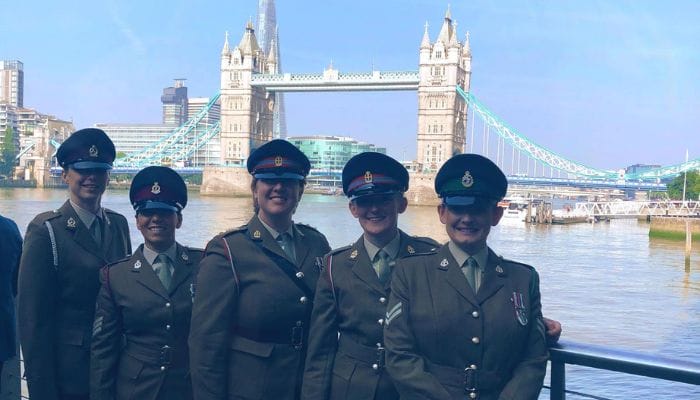
Expecting the unexpected
Even just talking about her shoulder used to trigger physical pain. “It was wild. It showed me just how psychosomatic pain can be. My brain had changed because of the chronic pain and understanding that was the first step in healing.”
The programme didn’t promise to take the pain away, and yet, it made a remarkable difference.
“They were clear: ‘We might not be able to fix this, but we’ll teach you to understand it and maybe that will help.’ And it did. I’m the best I’ve been in years, I’m able to cope so much better.”
Managing pain
Caroline has seen huge improvements in her pain management, been able to cope and actively use the techniques taught to her on her course. “I’m rarely bothered by it anymore. I haven’t had a flare-up since around October last year. Even now, as I sit here, I can feel a bit of buzzing in my arm and my nerves acting up, but honestly, it’s manageable. It doesn’t take over my day like it used to.”
Caroline adds “One of the biggest changes for me has been letting go of my reliance on constantly seeing an osteopath or physiotherapist. That used to be my safety net. Now, I’ve gained the confidence to manage things on my own, and that’s incredibly empowering. I am not on any pain medication, and I’ve managed 8 months without seeing an Osteopath so far!”
Learning to be kind to yourself
“I used to beat myself up about everything. I’d push myself too hard and blame myself when I couldn’t keep up. But one of the clinicians, Yanni, the way he spoke, the way he helped us reframe our thinking – I wish I could have him as an audiobook! Just to remind me to be kind to myself.”
Reclaiming life
Caroline’s journey didn’t end the way she had imagined as a 16-year-old with dreams of a military career and her journey has been anything but easy – marked by loss, pain, and years of uncertainty. But through it all, she’s shown an unshakable resilience. What once felt like the end of everything became the beginning of something new.
The Veterans Pain Management Programme didn’t just teach Caroline how to cope with chronic pain, it gave her the tools to reclaim her life. It helped her understand her body, her mind, and most importantly, herself. “I’m not cured,” she says, “but my pain doesn’t control me anymore.”
Caroline has found her identity again – as a veteran, a mother, and a nurse. She no longer questions her worth or her place.
One of the most powerful milestones in her recovery has been something many parents take for granted. “I was never able to carry my kids in a sling because of the pain,” she explained. “Now, I can even carry my 12kg toddler on my back, which is a huge deal to me and my recovery. That’s all thanks to the veterans’ course – especially Suzanne, and her advice on setting small goals and building strength bit by bit over time.”
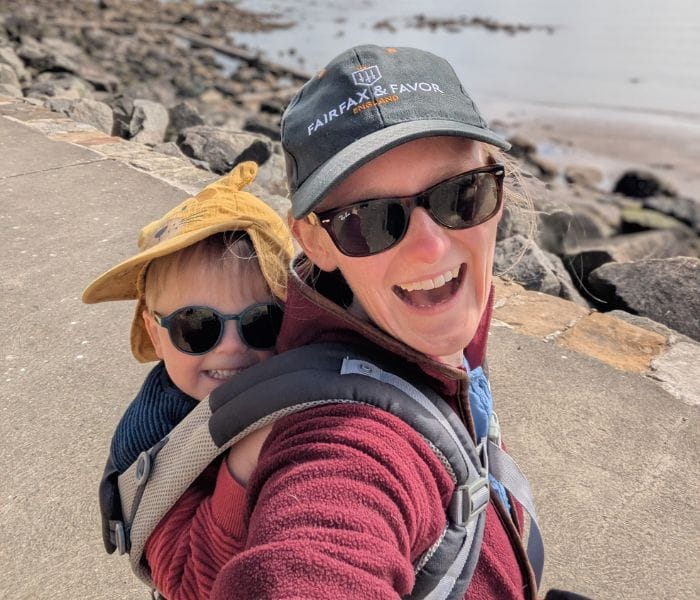
More information
- If you are a veteran in need of support, or have any queries about the assistance we can offer you, please contact Caroline Dunne, Centre for Veterans Health Coordinator: cdunne@kingedwardvii.co.uk
- Find out more about the Veterans’ Pain Management Programme.
Did you know all Service or ex-Service Personnel (including reserves) without medical insurance are entitled to a 20% discount on their hospital bill. It also extends to their spouses/civil partners and includes widowers and widows.
Help support our charitable work with Armed Forces veterans.
Are you inspired by the stories you’ve read here and wish to make a donation to the Centre for Veterans’ Health?
100% of donation to the Centre for Veterans’ Health, go directly to support veterans.
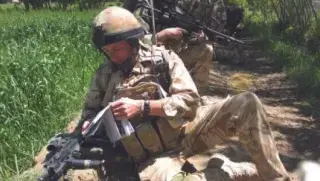
Since 1899 King Edward VII’s Hospital has supported members of the Armed Forces. We continue to uphold this commitment today.
For information, contact Caroline Dunne - Coordinator of the Centre for Veterans’ Health, at cdunne@kingedwardvii.co.uk.
All Service or ex-Service Personnel (including reserves) without medical insurance are eligible for a 20% discount on hospital fees. This also applies to their spouses, civil partners, widows, and widowers.
More stories
If you require surgical treatment, our world-famous centre of excellence is able to treat the full spectrum of knee conditions and complaints.
You can be seen by a specialist quickly and at a time that suits you, with same day appointments often available.
